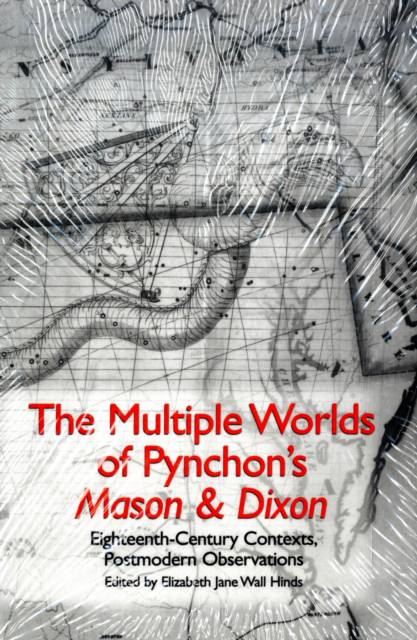
- Retrait en 2 heures
- Assortiment impressionnant
- Paiement sécurisé
- Toujours un magasin près de chez vous
- Retrait gratuit dans votre magasin Club
- 7.000.0000 titres dans notre catalogue
- Payer en toute sécurité
- Toujours un magasin près de chez vous
The Multiple Worlds of Pynchon's Mason & Dixon
Eighteenth-Century Contexts, Postmodern Observations
59,95 €
+ 119 points
Description
When Thomas Pynchon's novel Mason & Dixon was published in 1997, it marked a deep shift in Pynchon's career and in American letters in general. All of Pynchon's novels had been socially and politically aware: V., The Crying of Lot 49, Gravity's Rainbow, and Vineland are all marked by social criticism and a profound questioning of American values. They have carried the labels of satire and black humor; "Pynchonesque" has come to be associated with erudition, a playful style, anachronisms and puns - and an interest in scientific theories, popular culture, paranoia, and the "military-industrial complex," which may or may not, according to Pynchon's wild and widely populated casts of characters, be the definitive feature of "America." In short, Pynchon's novels were preeminently postmodern. Mason & Dixon moved beyond postmodernism to use the same style, wit, and erudition to re-create an eighteenth century when "America" was being formed as both the place and the idea we have come to know. Pynchon's focus on the creation of the Mason-Dixon Line and the governmental and scientific entities responsible for it makes a clearer statement than any of his previous novels about the slavery and imperialism at the heart of the Enlightenment, and Mason & Dixon levels a dark and hilarious critique at this "America." The novel was a New York Times bestseller. This volume of new essays studies the interface between eighteenth- and twentieth-century culture both in Pynchon's novel and in the historical past. It offers fresh thinking about Pynchon's work, not only because it deals with his most recent novel, but also because the contributors take up the linkages between the eighteenth and twentieth centuries in studies that are as concerned with culture as with the literary text itself. The scope of the volume is indicated by its four sections: "The Rounds of History," about historiography and narrative temporality; "Consumption Then and Now," which deals with slavery, trade, and consumption; "Space and Power," which confronts the connections between "place" and imperial power in the eighteenth century; and "Enlightenment Microhistories," which studies in detail three specific eighteenth-century incidents. ELIZABETH JANE WALL HINDS is Professor of English at The College at Brockport, State University of New York.
Spécifications
Parties prenantes
- Editeur:
Contenu
- Nombre de pages :
- 232
- Langue:
- Anglais
- Collection :
- Tome:
- n° 4
Caractéristiques
- EAN:
- 9781571134110
- Date de parution :
- 01-05-09
- Format:
- Livre broché
- Format numérique:
- Trade paperback (VS)
- Dimensions :
- 147 mm x 221 mm
- Poids :
- 340 g

Seulement chez Librairie Club
+ 119 points sur votre carte client de Librairie Club
Les avis
Nous publions uniquement les avis qui respectent les conditions requises. Consultez nos conditions pour les avis.






